This text is part of the Teaching Hard History Text Library and aligns with Key Concept 6.
Dear Father
I reported for duty in person this morning to General Martin and he has appointed me Asst. Adjt. Genl. To the first Brigade at Camp Mangurre.
I have received the appointment and it dates back to April 1st 1862. As you have not come up this evening I think this will reach you when you receive my former letter. I hope you will see that [?] is not fit for a [?] and let me have [?] as it will be necessary for me to have Hawk Eye had he not better ride him up.
You don’t know how much bothered I am about you in regard to your negroes that is the trouble you must necessarily have about them. I would take it seriously to mind the expediency of moving them or not and would not certainly move them before it became absolutely necessary.
I can’t but think that Slavery has received its death blow with this war. With the whole world against it with a large community of poor white men anxious for work and who can do it the work as well as the negro the hot sun being no impediment as you yourself know having tried it during harvesting how can it stand.
From the earliest ages Slavery has existed and its most flourishing times were when it was first known and since it has gradually but surely declined. The practice of selling captives into slavery has but the barbarous practice of an unenlightened and uncivilized people and all institutions of slavery have gradually declined until now none remain but in America and in some of the Spanish Countries.
After our independence the Capitol of S.C. will be filled with natives of Foreign Governments hostile to the institution of Slavery which will soon become the feeling of the city and the abolition of slavery in that city must necessarily be the consequence and far and near around that city to a greater or smaller extent will the abolition of slavery be at first listened to and then agreed to and steadily but irresistibly the feeling against Slavery will increase till at least every slave in the limits of S.C. will be free to do as he like how many years or centuries it will take to bring about the above state of things none can tell but after the example of the North in regard to the abolition of slavery since the Revolution of 76 we can but fear it will not take long.
I cannot tell how long my appointment will last as it is at the will of the Governor to take it away but I think I will have one from this time till the war ends.
Hoping this will reach you and that you will send up the horse and boy if you think proper.
I remain Your Affit. Son
WHS Burgwyn.
P.S. Have you bought a saddle for me there has come here a marked for Harry and three saddle blankets at least to be so.
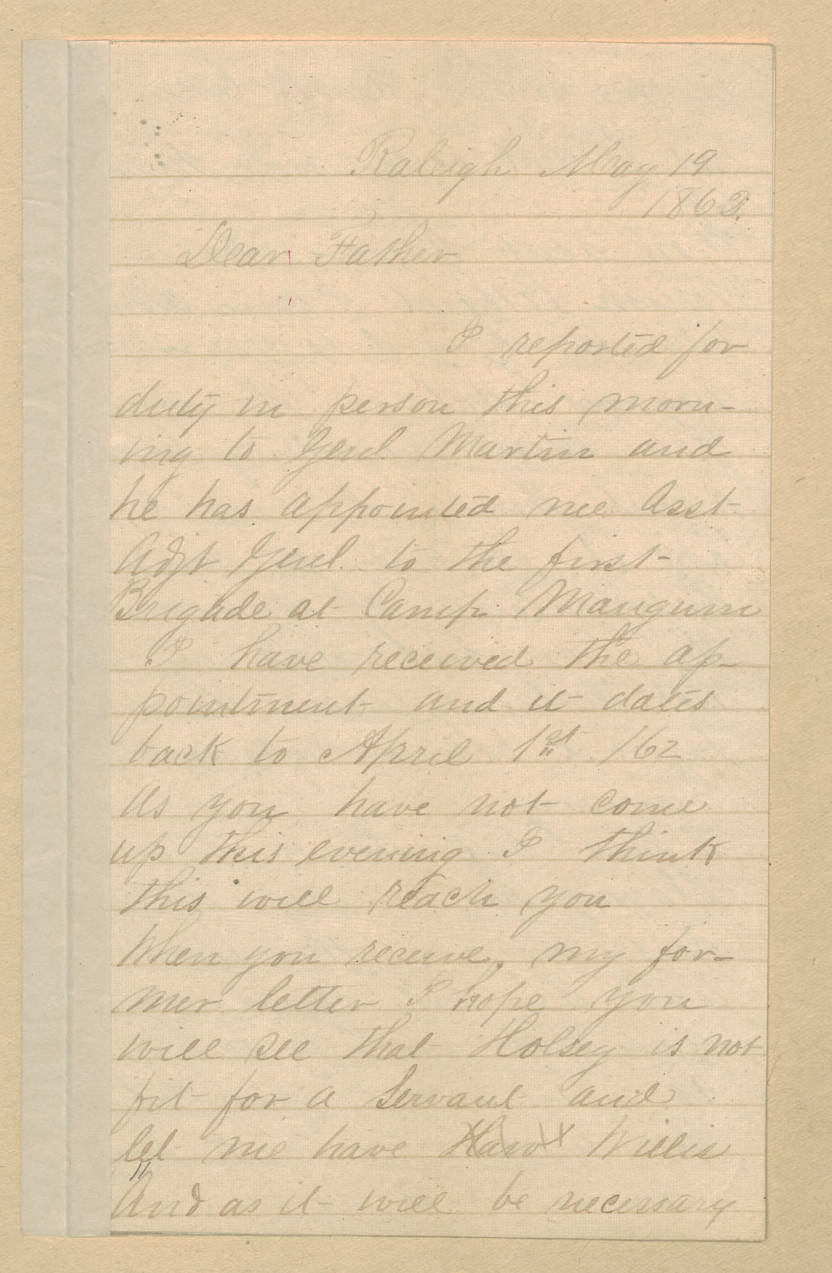
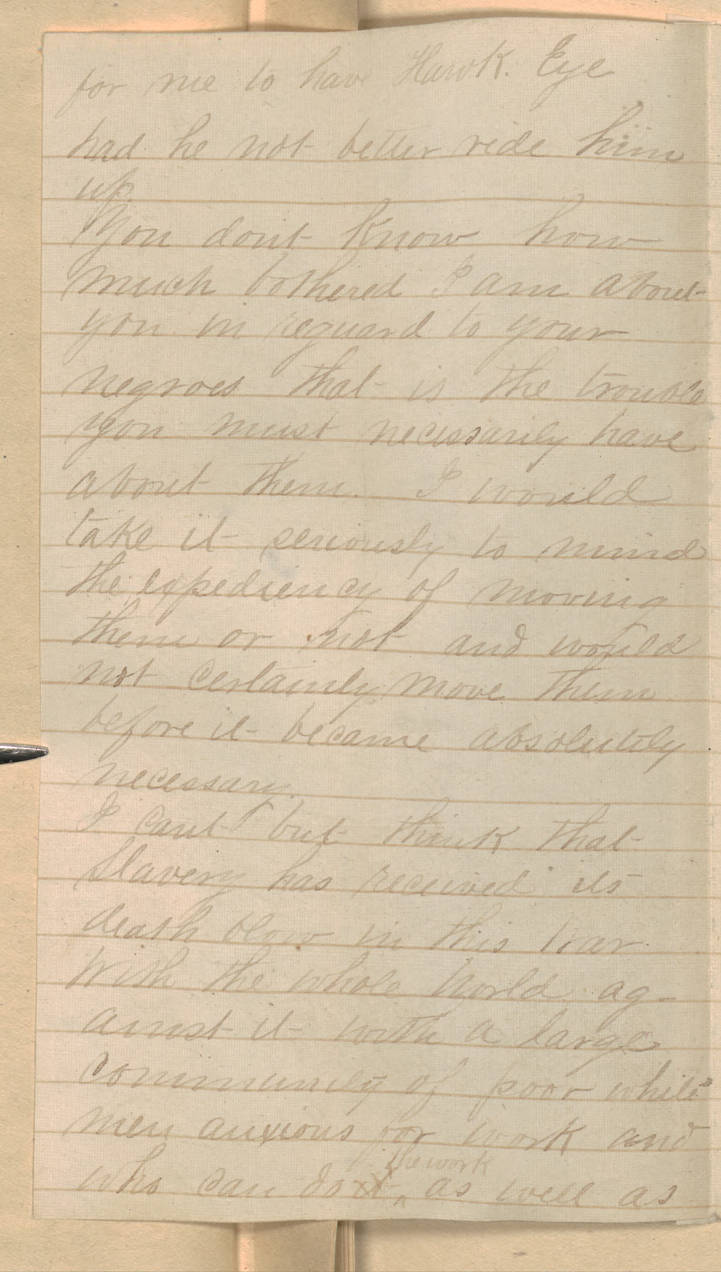

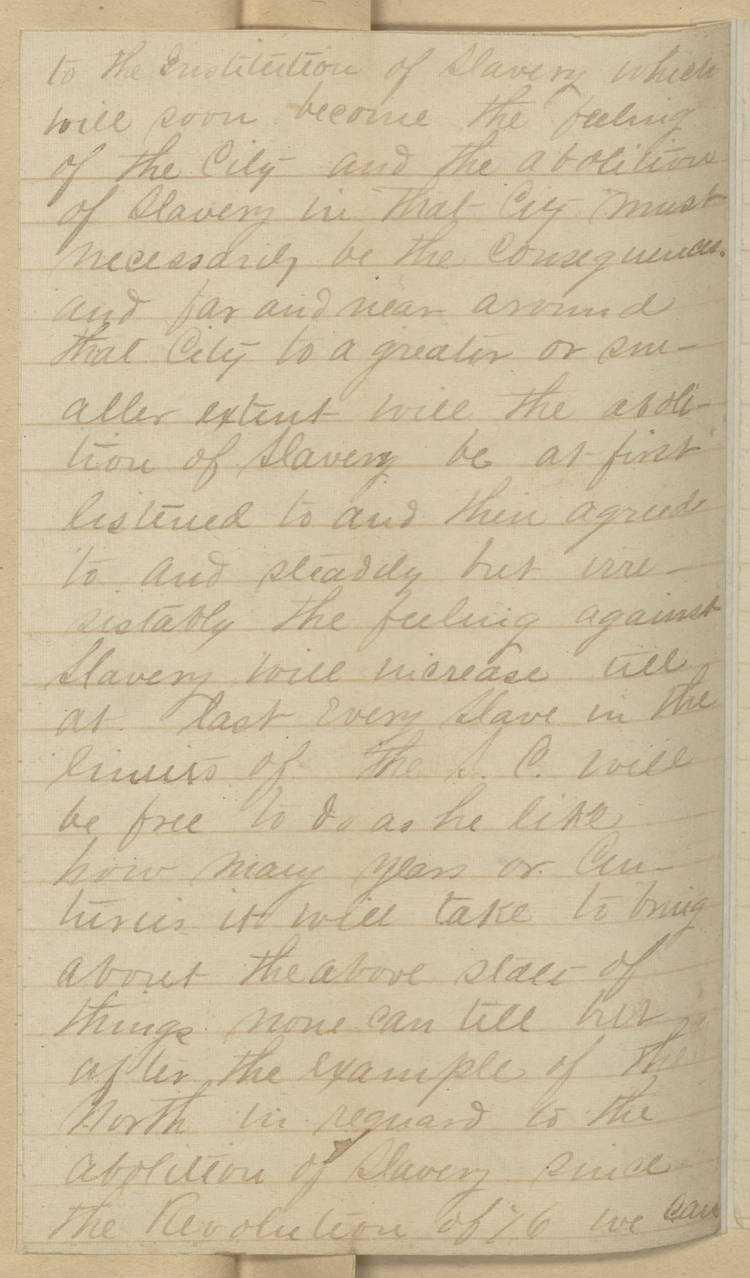
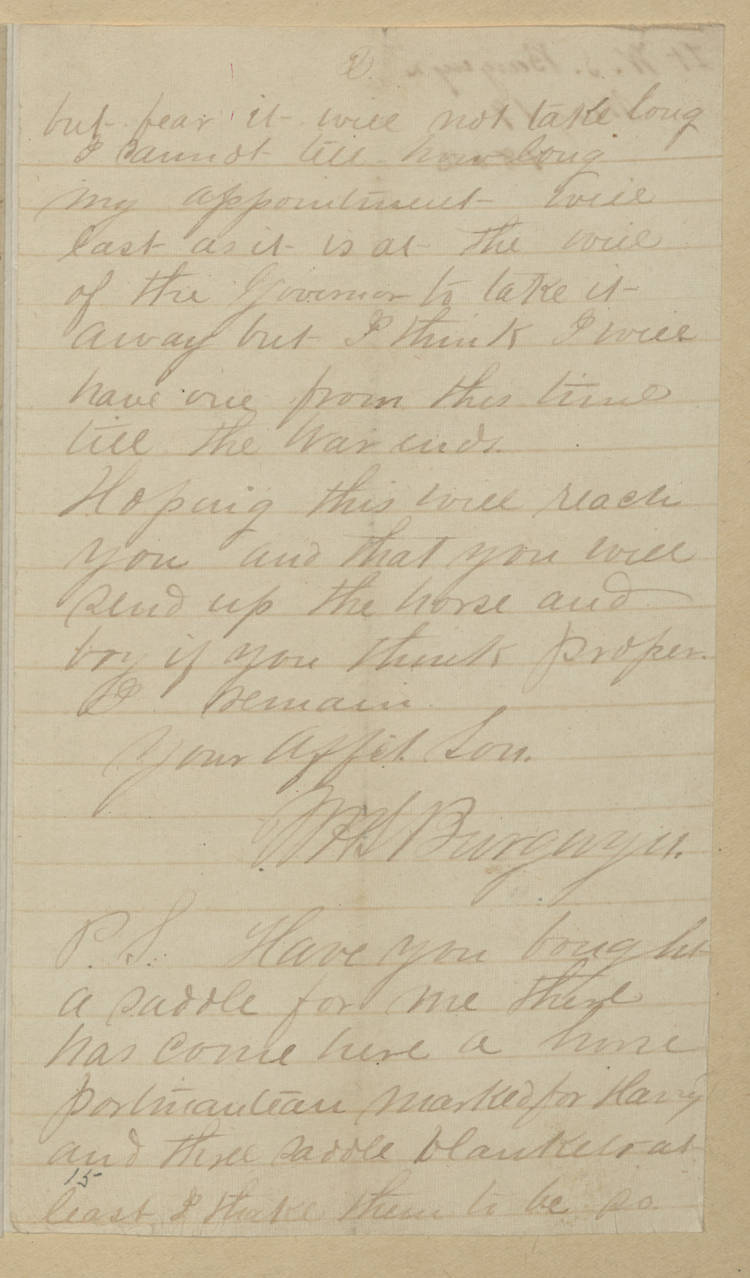
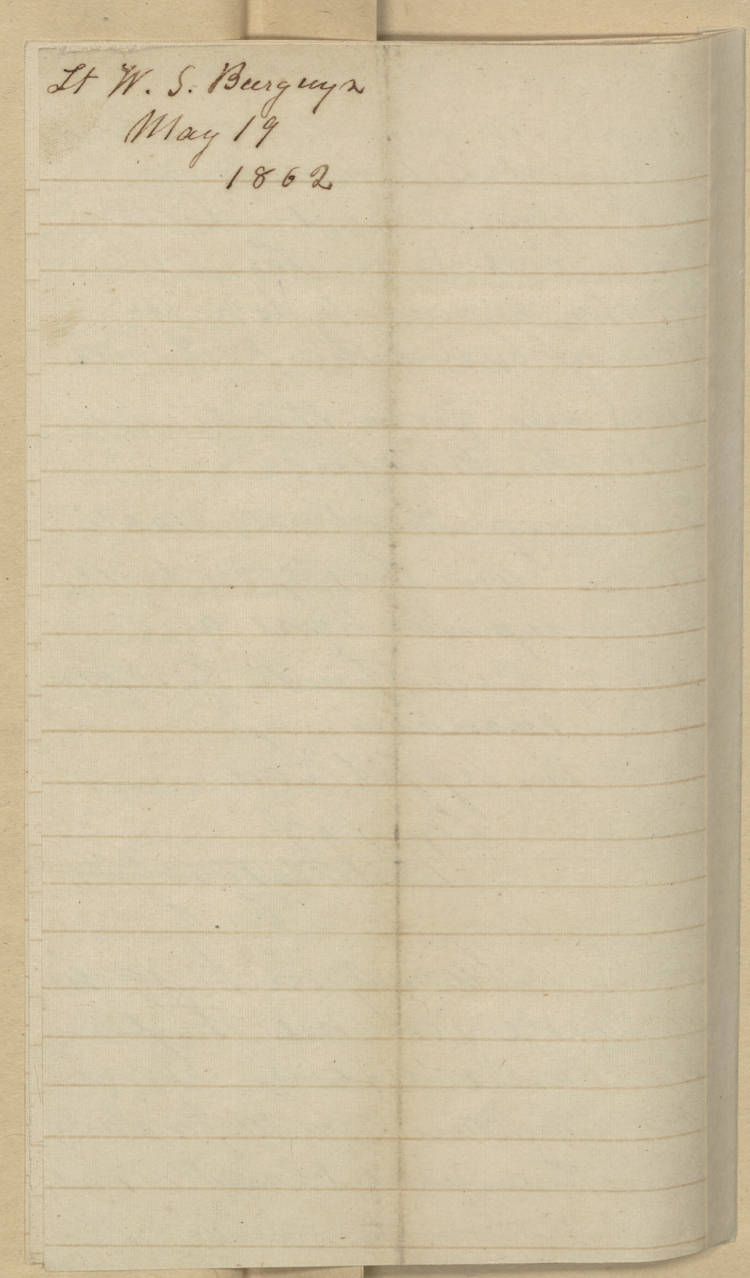

0 COMMENTS